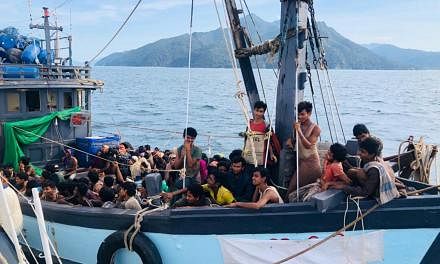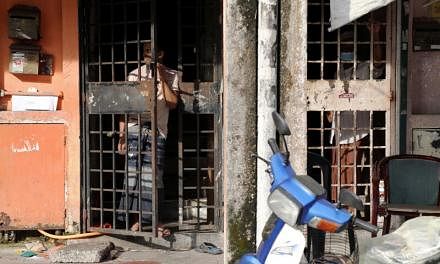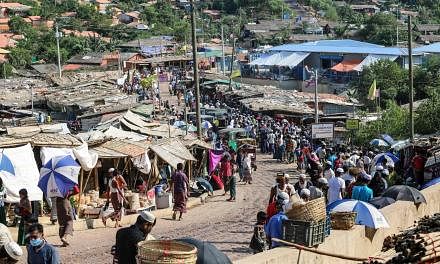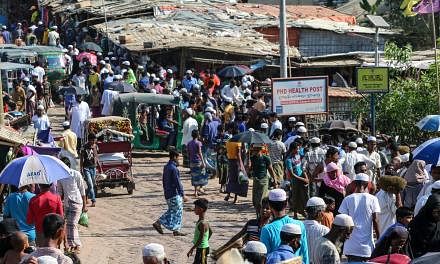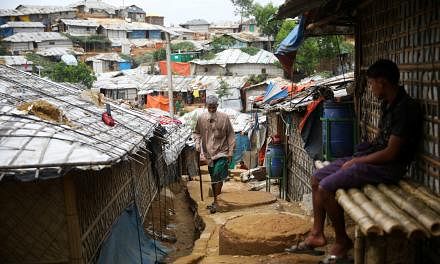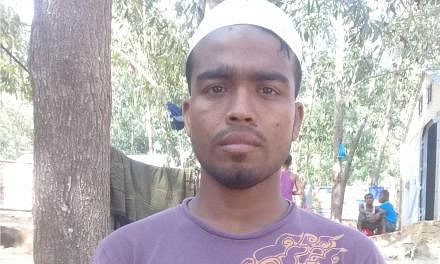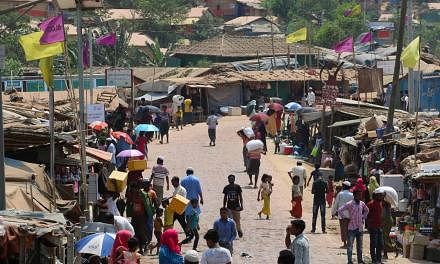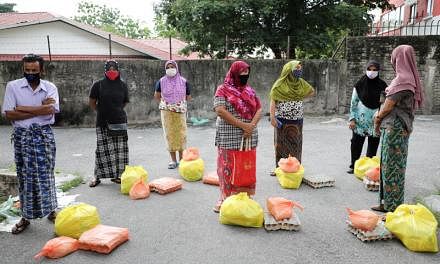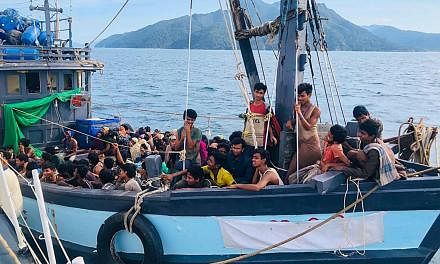DHAKA - Bangladesh plans to increase the pressure on Myanmar to take back the 700,000 Rohingya refugees that it has been sheltering for over a decade.
"On one hand we are concentrating on humanitarian aid, and on the other, we are beefing up the international pressure on Myanmar, so they can take them back at the earliest (time)," Bangladesh's State Minister for Foreign Affairs Mohammed Shahriar Alam told The Straits Times on Thursday (Sept 21).
He was speaking in response to the declaration by Myanmar leader Aung San Suu Kyi on Tuesday that her government was ready to verify the refugees for repatriation according to a bilateral agreement reached in the 1990s, after an earlier exodus from Myanmar's troubled Rakhine state.
"They didn't respect that agreement," Mr Alam said of Myanmar's previous military government. "It was very difficult to communicate with them - almost zero response from the Myanmar side."
The Bangladesh government had "patiently" waited for Ms Suu Kyi's civilian government to take over after her victory in the 2015 election, hoping the transition would speed up the process, he said.
"We always wanted to engage meaningfully - bilaterally, not internationalising the issue," he said. "But obviously that didn't happen."
Bangladesh, which sent about 230,000 Rohingya back to Myanmar in the 1990s, has waited for years for Myanmar to accept another batch of 2,415 who have had their origins verified.
But its crowded refugee camps in the south-east are now being strained by an influx of 429,000 Rohingya who have poured in since Aug 25, when a Rohingya insurgent attack triggered a scorched-earth military crackdown.
The Rohingya are not considered an ethnic group in Myanmar, but as illegal "Bengali" migrants who arrived during colonial times.
Hundreds of villages in Rakhine have burnt to the ground - an act which the fleeing Rohingya blame on ethnic Rakhines working in concert with security forces. Naypyidaw has suggested the villagers are burning their own homes.
The widespread destruction of villages means new rules for refugee verification would be needed, said Mr Alam.
Many of the refugees are unaccompanied children, and hence unlikely to have documents proving their identity. The same applies for those whose homes have been razed.
"We would need to put new procedures in places, like United Nations would have to be present during the identification process," he said.
The minister also urged Asean to press Myanmar on the Rakhine issue.
"Asean countries need to come forward because Myanmar remains mindful of its relationship with the Asean countries," he said.
Ms Suu Kyi, who is also Myanmar's foreign minister, skipped this month's United Nations General Assembly in New York. Asean ministers present there are expected to hold an informal meeting on its sidelines, where the Rakhine issue could be discussed.
Although Asean countries such as Indonesia, Malaysia and Singapore have publicly voiced their concern over the Rakhine issue, there have been no initiatives from the 10-nation bloc on the humanitarian crisis. The grouping operates by consensus.
Mr Alam said: "Asean has a policy of not interfering in other member countries' internal affairs, but this is an issue which is no longer Myanmar's own."

